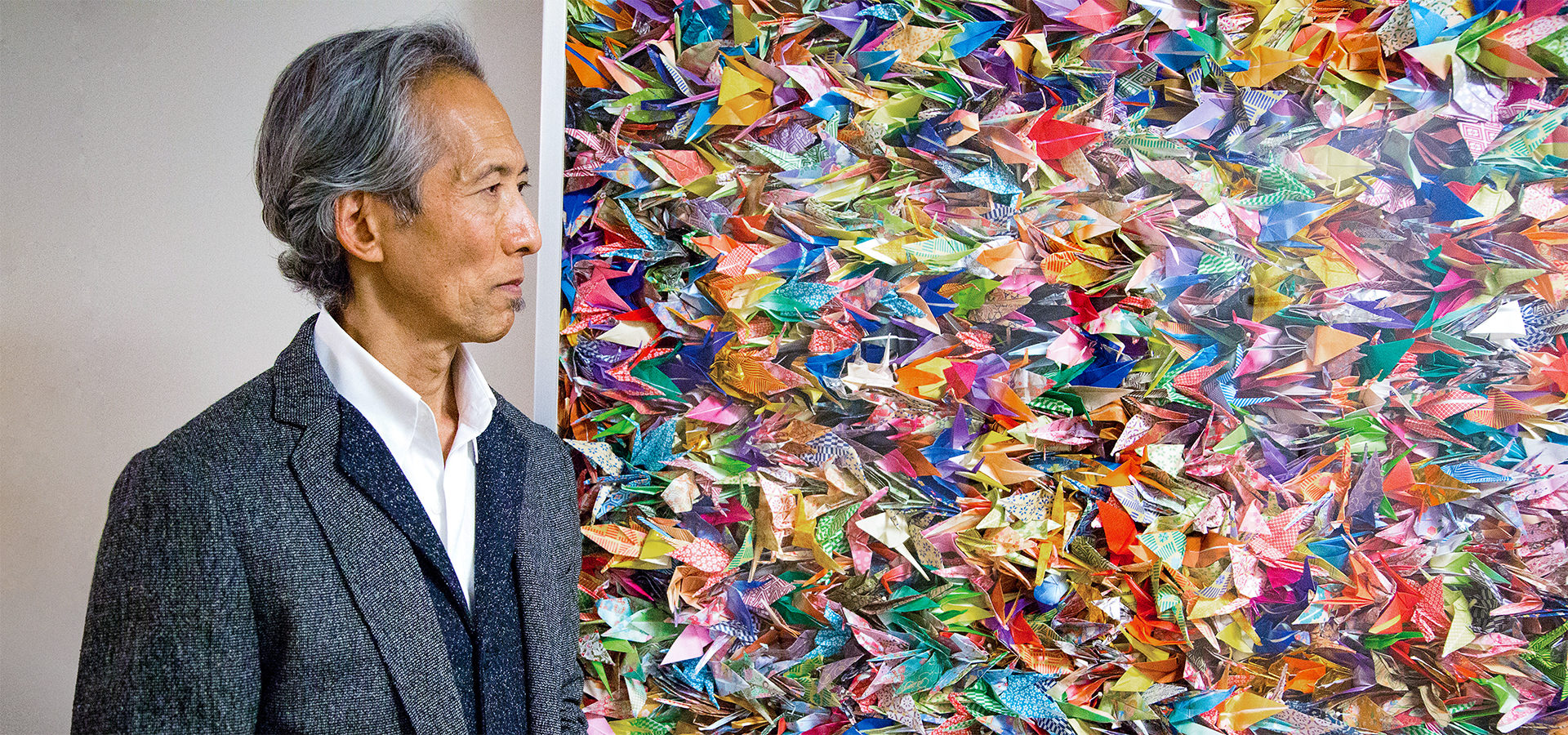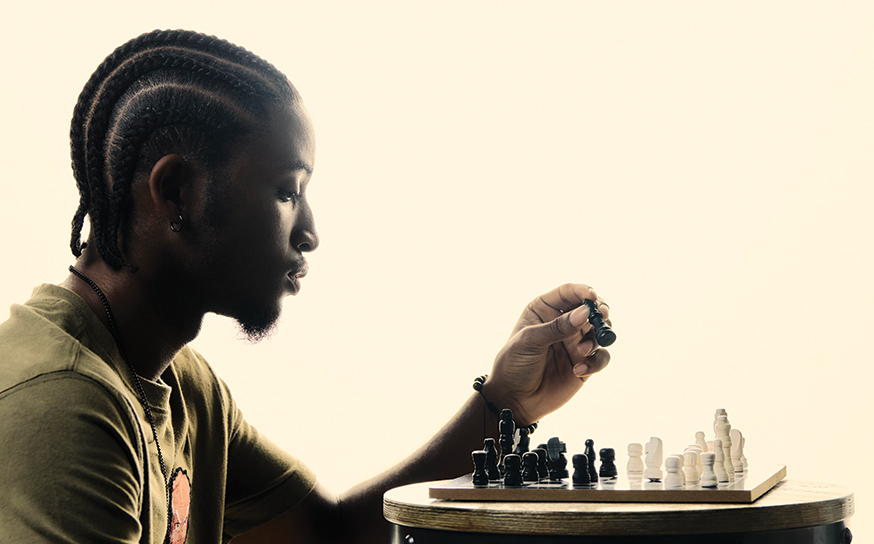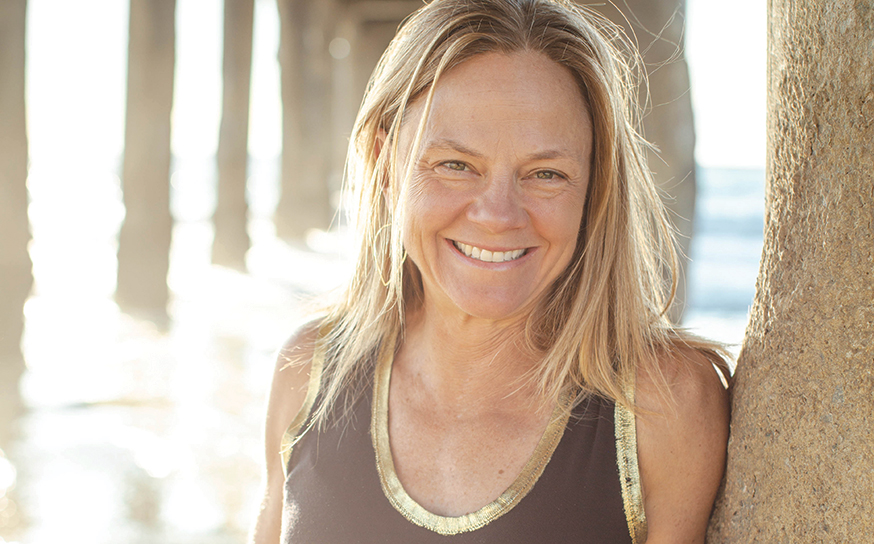I first met Glen Komatsu, MD, at a fund-raiser in Palos Verdes where he was honored for his dedication to his palliative work with Providence TrinityCare Hospice Foundation. After hearing him speak so humbly about the selfless work he is doing in our community, I knew I had to share his story.
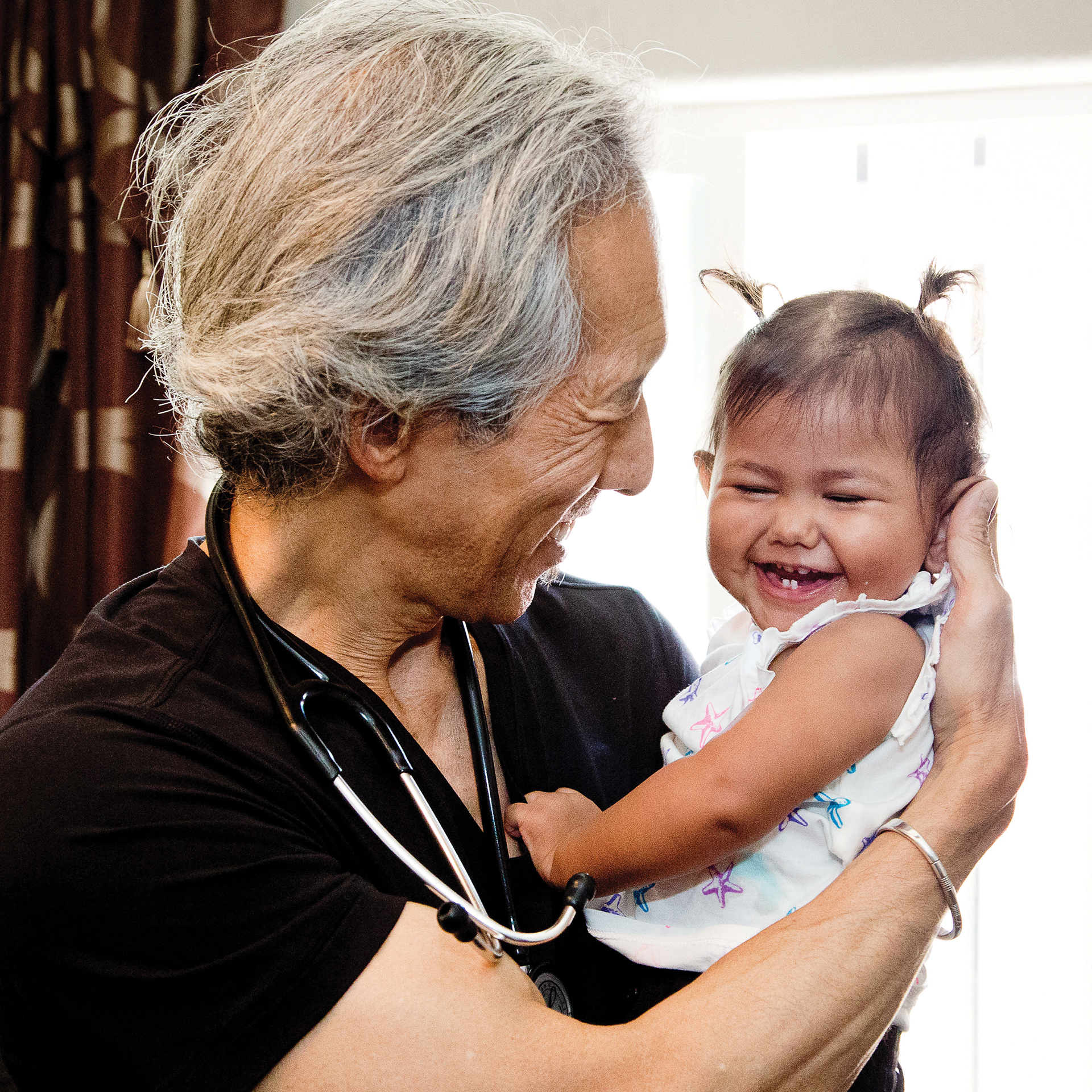
When I arrived at Glen’s office in Torrance for our interview, I was led to a room to wait for him. He was on a call. When he walked into the room a few minutes later, I could immediately sense that his energy was very different from when he was giving his talk at our previous encounter. He seemed somber and heavy, and his eyes looked sad.
I said, “I am sorry, it seems I got you at a bad time.” He responded, “Thank you for acknowledging that. I just had a very difficult call with the parents of one of my patients.” The patient is a 1-month-old baby. I had to fight back tears as he told me the story of what this sick baby and the parents were going through.
“Most people would rather not talk about or think about children who are in pain or suffering, or children who are dying, because it’s just too hard,” he shared. “It is not the natural order of things. It’s not supposed to happen.”
It struck me in that moment just how heavy many of his days must be. It takes an incredible person to care for patients who are going to die, especially young ones who have barely begun to live. Glen takes all this on every day.
Learning about his family history was helpful in understanding his deep empathy for others. A farm boy from Arizona, he was raised by second-generation Japanese American parents who went through World War II. His grandparents came to the U.S. in the early 1900s, and they and his parents endured the World War II incarceration.
“My grandfather was considered especially dangerous because he was a community leader,” he shares. “So one night, they took him and put him in a high-security prison. Most other people got two weeks to gather their belongings and report to Santa Anita racetrack, where they were shipped to these camps in the middle of nowhere, all across the West. This is important to me because I grew up learning about that. My parents talked to me a lot about doing my best and caring about others.”
Glen faced a lot of adversity growing up as the only Asian American kid in his grade school in Phoenix. He was often the target of discrimination and racism. He learned later that his parents were asked by a neighbor to take their name off their mailbox because they didn’t want it to be known that an Asian family was living in their neighborhood. “That sense of what was right and wrong was instilled in me at a very early age. It gave me a higher purpose—not just doing my best but doing what was right.”
Glen started college with an engineering major because he liked science and math. Afterward, by a process of elimination, he decided to apply to medical school. “I had nobody in my family in medicine, and I had no experience in medicine,” he says. “But I was curious, so I went to medical school at the University of Arizona. I was debating about what kind of doctor to be—choosing between psychiatry, pediatrics and obstetrics because these fields were where people came to doctors for positive experiences, not just because they were sick. Ultimately, I decided on pediatrics.”
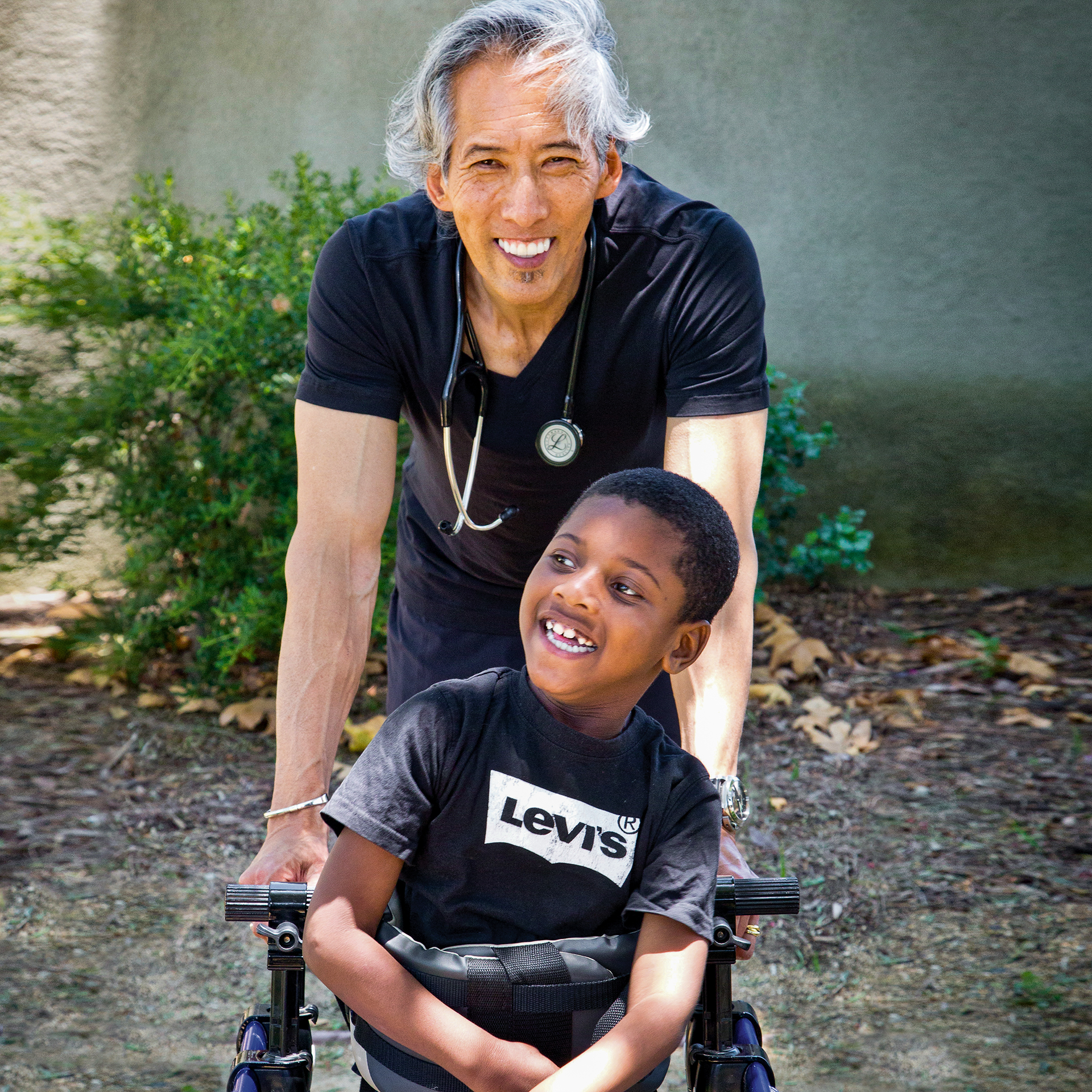
Glen completed a pediatric residency at the University of California, Irvine and Long Beach Medical Center and Children’s Health Orange County. This was where he fell in love with neonatal intensive care. The stakes were very high.
“When I was younger, I liked that adrenaline rush that comes with helping babies [who were in emergency situations], but I came to love the field because I could spend as much time as I wanted with the parents and the children. Early on in my career, I got really upset and angry, thinking that [these situations] are not right—that this is not the way the world is supposed to be. I finally realized that this is just the way the world is, and that some babies are not going to live no matter what we do. This was a revelation for me because I realized that I couldn’t take all the blame, and I also could not take all the credit when babies lived.”
“Most people would rather not talk about or think about children who are in pain or suffering, or children who are dying, because it’s just too hard.”
As he progressed in his career, Glen became interested in the field of bioethics, which covers interpretation of laws and court cases in medicine. He studied the subject for many years, and since 1990 he has held the position of cochair of the bioethics committee at his hospital.
Glen was drawn to the field of palliative care and its complex combination of ethics, communication, pain, symptom management, and psychosocial and spiritual support. This field brought everything together for him, and he realized that this is what people need—not just ethics or medicine in the strict sense but rather a holistic view of medicine and health care.
In the early 2000s, a flyer came across his desk for a two-week study of palliative care in Boston, sponsored by Harvard. He applied and was accepted to join the course in 2003. There he found people with the same values and concerns as his.
After Glen returned home, one of his small-group leaders in Boston—a doctor and palliative care coordinator at Massachusetts General—encouraged him to come back and do a fellowship with them. He chuckled at the thought of leaving his practice and moving his family back to Boston for a year to live on a fellow salary—a fraction of what he was making as a neonatologist.

“Luckily, I have a very understanding wife who saw that I was increasingly disenchanted with neonatology,” he shares. “And fortunately, they were willing to take a chance on a 50-year-old neonatologist.”
He considers those 12 months of his fellowship—from 2004 to 2005—the best year of his professional life. He loved being a learner again and not having to worry about administrative stuff. He spent his time talking to patients, talking to their families and learning from pioneers in the field.
After the fellowship, Providence Little Company of Mary offered to create a special program for Glen—a first for a full-time palliative care doctor. In August 2005 he started the program that is now called TrinityKids Care at the hospital, taking over the pediatric unit and the medical directorship. It was a very small program at the time, with five to 10 children in their care on any given day. Today the number of children they help daily has grown to 60 or 70. Sadly, this is still a fraction of the number of children who need hospice services, but the growth in available facilities to help them is encouraging.
The doctor believes that coming to terms with his own mortality is another benefit of the work, because he’s confronted with mortality issues daily. “I think about my own death a lot. I did have my own cancer experience in 2010. And I was very lucky because it was curable cancer, but I did go through radiation.”
The Thousand Crane Endowed Chair is a foundation created in honor of Glen after his recovery from cancer to support his work and the work of future caregivers. The endowment allows him to spend a portion of his time developing exceptional training and educational opportunities. “I was so overwhelmed at the notion that people in the community would support my work and my vision,” he says. “I still can’t quite believe it, but it is inspiring to me.”
He explains his extraordinary mindset when it comes to his work with children: “Palliative care in general is very countercultural, in adults but particularly in children. Nobody goes to a children’s hospital for palliative care—and especially not hospice. They go there for their miracle. I have a problem with the word ‘miracle’ in health care because we’re just doctors. We do some amazing things, but miracles are on another level. To me, a miracle is every time I watch a child being born. I have witnessed thousands of deliveries in my career, and I never got tired of watching a baby being born. I had to figure out how to do this work for the long haul, to do it in a way that was resilient and self-compassionate. And so that’s a lot of what my focus has been on. And that’s what The Thousand Crane is supporting.”
Glen feels we need to think about healing differently, even in the most extreme situations. “Suffering—whether physical, emotional or spiritual—is a universal human experience. Our sacred duty is to relieve suffering as best we can. With such care, dignity is preserved, hope is maintained, and the human spirit is renewed in patients, families and us—the health care givers.”
Southbay ‘s Annual Spring Style Guide Has the Latest Fashion Trends, Jewelry, Home Goods and Gifts!
Shop local and support our amazing businesses.






